12, March 2018
Southern Cameroons Crisis: The government is still in denial 0
After more than 17 months of turmoil in Cameroon’s two restive English-speaking regions, the country’s government is still in denial that it has lost control of these regions. Despite growing insecurity in the two regions, the government still maintains that there is security in the regions. The death toll has been staggering and many families are yet to come to terms with the loss of their family members and sometimes, even their homes, especially in areas such as Kwakwa and Kembong where the government resorted to collective punishment as a means of intimidating the population.
Despite the government’s denial, it has recently created a fifth military region in Bamenda, the North West region’s capital. It has also increased the number of soldiers in Manyu Division, Southern Cameroons most populated division, where many army soldiers have been sent to an early grave. Despite the lull in fighting, there are still many skirmishes in the region and tensions remain very high. Places like Kembong in Manyu Division and Mbonge in Ndian Division are still considered by many as ticking time bombs that could go off at any time.
Analysts across the country and the world see the government’s deployment of troops in the regions as a move to face off with the separatists who are hell-bent on breaking up the country to grant the English-speaking population the independence it has been hankering after for years. The Yaounde government has also been working hard and long to prove that there is enough security in the two regions and this is fast drying up the state’s coffers and more than 800 civilian and military lives have been lost in a conflict that started with a peaceful demonstration by lawyers.
Most of the lives lost were due to the government’s refusal to head to the negotiating table, though the country’s president has, on many occasions, called for dialogue and peace as necessary factors that must be in place for the country to reach its 2035 development goals. But many analysts see the president’s calls for peace as a joke. He has been accused of paying lip service to the whole notion of peace and dialogue and his actions during the period of the conflict have clearly portrayed him as a man who professes peace, but practices violence.
The government’s violent response to demonstrations by teachers and lawyers are to blame for the degeneration of the conflict. If the entire Southern Cameroons population is in support of the calls for secession, it is more because of the government’s military response to a simple call for federalism. Many Southern Cameroonians have viewed all government actions ever since the conflict erupted as a strategy to shut up the people and keep them in the darkness of ignorance.
The Southern Cameroonian population was angered the most by the brutality Buea University students were subjected to during their call for dialogue with university authorities following a unilateral decision by Buea University authorities to increase fees.
In a typical fascist approach, the students were brutalized, some were made to drink raw sewage and many girls were raped. Similarly, many young men and women were taken to the police station and ever since, nothing has been heard about them.
The government has never apologized for allowing its forces to unleash such terror on innocent and armless students. It is yet to account for all the students who had been arrested during the student strike and the vice chancellor who was responsible for the strike, Professor Nalova Lyonga Pauline Egbe, has recently been rewarded with a ministerial position.
Ever since the conflict started, many schools have remained closed, especially in rural areas where most of the fighting is taking place today. In many of those villages, many young men have escaped into the jungle for safety as government troops have the nasty habit of brutalizing the population each time a soldier is killed by unknown armed men.
Like schools, the regions’ courts have remained closed and each time an English-speaking Cameroonian is arrested, he or she is immediately sent to Yaounde where he or she is held in custody for many months. It should be called that one of the grievances that caused the Southern Cameroons crisis was the abusive use of French in the English-speaking parts of the country and the subjecting of Southern Cameroonians to the use of French even when millions of them have not had any close contact with the language.
For more than 15 months, the country’s English-speaking minority has been striving to have the government rethink its strategy. It has organized ghost town operations with the objective of bringing the government to the negotiating table where the form of the state could be discussed in order to put an end to the hyper-centralized system that has brought frustration, death and destruction to Cameroonians. But the government’s refusal to discuss the form of the state has caused the conflict to drag on and this has resulted in moderate English-speaking Cameroonians to move from federalism to secession.
This is also causing the conflict to take a turn for the worse. Extrajudicial killings have become a daily affair and ordinary citizens are also killing and maiming soldiers in retaliation for the killing of many civilians. The arrest of secessionist’s leaders in Nigeria on January 5, 2018, and their illegal extradition to Yaounde in late January have not helped matters. These leaders have been held incommunicado for almost two months and this is a concern to rights groups which hold that they deserve a fair trial and access to lawyers.
Similarly, armed groups have also cropped up across the entire region and their actions have left the government in a tight spot. The armed groups have succeeded to kidnap a few government officials and they are threatening to kidnap more as a strategy that will push the government into telling the world where their arrested leaders are. This may also help to reduce the abuses that are fueling the conflict.
These abuses are ongoing and getting serious by the day. The international community is concerned about the Cameroon government’s refusal to call for genuine and inclusive dialogue. And its approach to the resolution of this conflict has been criticized by the International Crisis Group. In its report that was released after the English-speaking regions declared their independence last October, the rights group decried government action.
Defense and security forces have always responded with disproportionate force and this usually result in deaths and sever injuries. It attributes the injuries and deaths to the use of live ammunition and excessive use of tear gas, including in homes and against worshippers.
Defense and security forces have also arrested hundreds of people without warrants of arrest, including in their homes. They have been making use of torture, as well as inhuman and degrading treatment. Sexual abuse, destruction of property and looting of homes by soldiers and police, as well as shooting from helicopters at protesters like on October 1, 2017, in places like Kumba, Bamenda and Buea have been reported by residents, local politicians, senior officials, the press, human rights organizations and the Catholic bishops of the two regions.
Today, the Anglophone regions remain under curfew imposed by their respective governors. The curfews have been imposed supposedly to allow security forces to contain attacks by armed separatists on members of the security forces. But the security forces have also been killing civilians indiscriminately. They have also been accused of committing crimes in the regions in which they have been deployed.
Since January 2018, more than 30 members of the security forces – the military, police and gendarmes – have so far been killed in guerilla-style attacks, especially at checkpoints, with the latest taking place in Kumba on March 8. The separatists have also reported having kidnapped two government officials and efforts to locate the two officers have been futile.
As the government keeps looking the other way while its security forces continue to kill and maim ordinary citizens, the Southern Cameroonian Diaspora is also working hard to ensure that the people get the right means to protect themselves. The Diaspora has been quietly mobilizing resources to bring arms to the country. These arms are helping Southern Cameroonian fighters to give government troops a run for their money.
Though the situation may be very serious, there is still room for a negotiated agreement. The government has to abandon its policy of attrition that has not worked for 17 months and embrace genuine and sincere dialogue. This dialogue must include key members of the Anglophone Diaspora which has a huge war chest.
The Southern Cameroonian Diaspora is rich. It is a Diaspora that has transformed marginalization into opportunity. If the government of Cameroon has to dream of political stability, it must reconcile with the Southern Cameroonian Diaspora that has a huge stomach for a fight. The Southern Cameroons Diaspora will continue to destabilize the country if the government does not reach out to members of this Diaspora.
Recycling old members of government and bringing those the population has rejected like Atanga Nji and Nalova Lyonga into government will not bring peace to Cameroon. Atanga Nji and Nalova Lyonga do not represent anybody and they will surely not have an audience to talk to. If the government is ready and willing to bring about an end to this conflict, it must be willing to engage with the Southern Cameroonian Diaspora which is highly concentrated in North America and the United Kingdom.
The world has changed. The Diaspora is a key factor in any country’s development. Ignoring this huge and resourceful group will only rob Cameroon of the peace it needs to engage in serious development activities. Being in denial is only making matters worse. The current lull could be deceiving. It could simply be the calm before the storm as Southern Cameroonian fighters are not yet ready to throw in the towel. There is no return to the status quo ante. The form of the state must be discussed and the Southern Cameroons Diaspora must be made to take its place at the table if peace has to return to Cameroon.
By Kingsley Betek and Pelagie Ebot with contributions from Rita Akana and Ebong Ngole
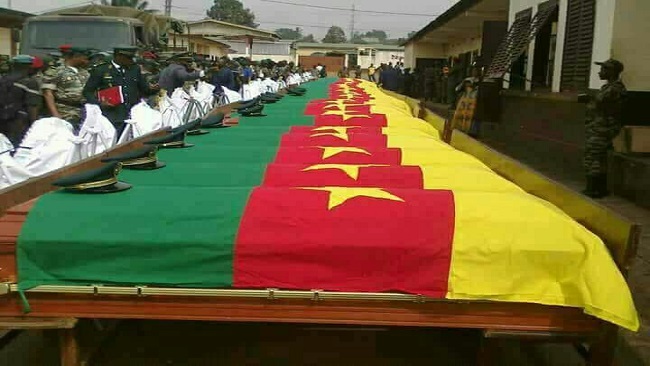
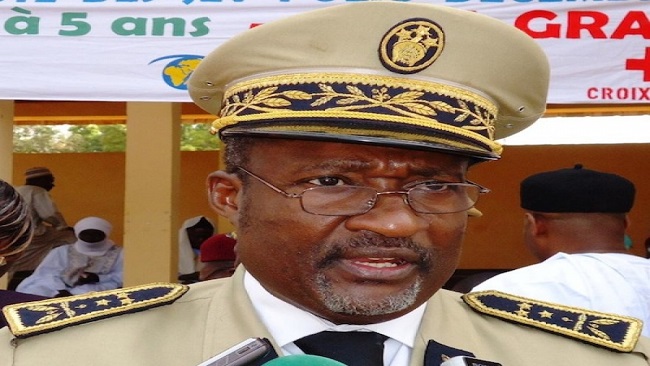
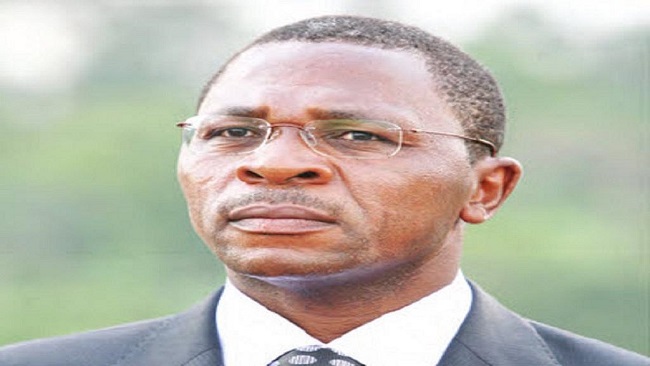

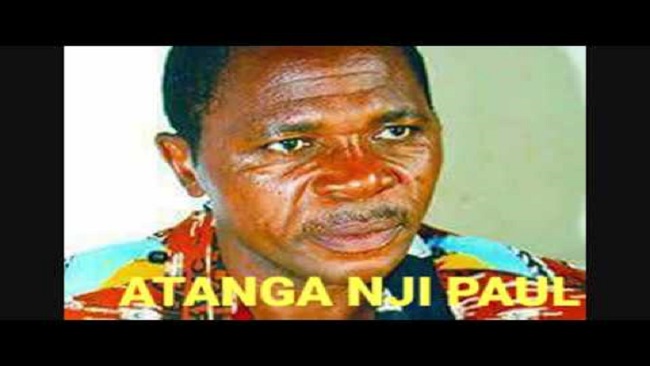
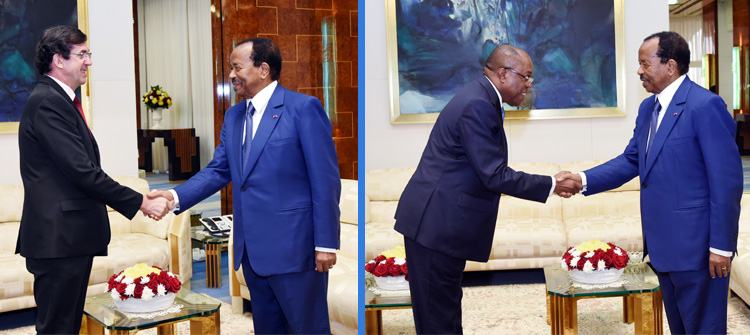
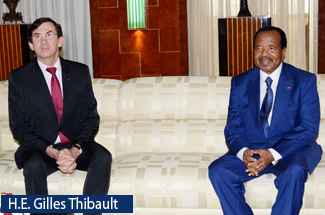
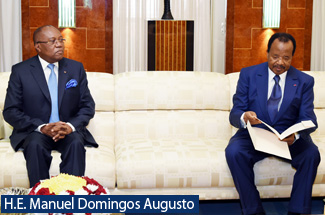
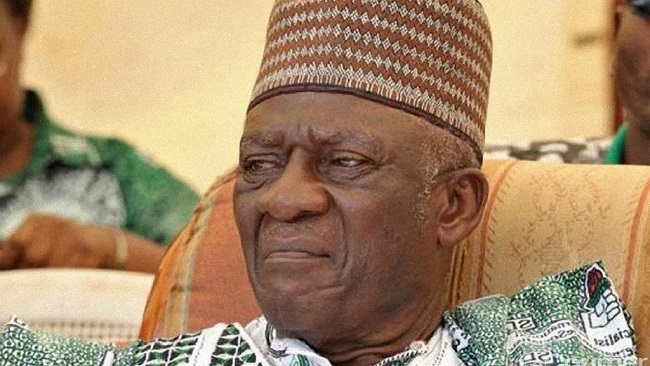
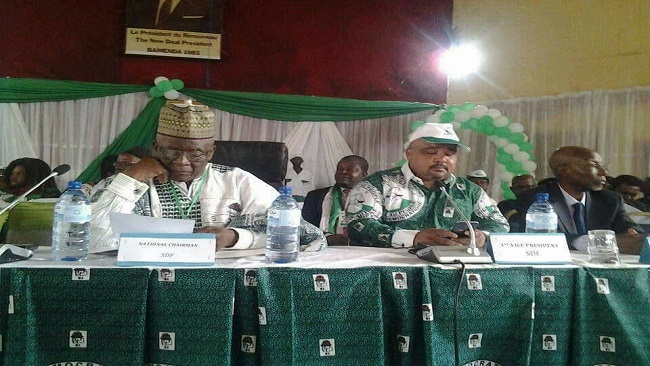

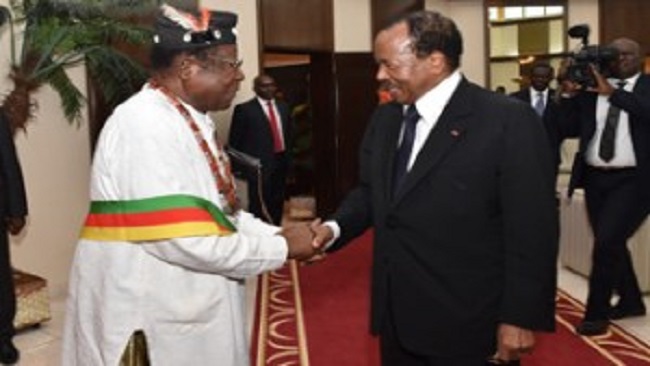














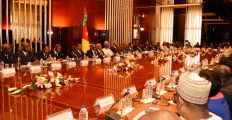


21, March 2018
Southern Cameroons and the Abduction of Prof Leke Tambo: A Most Embarrassing Spectacle 0
Whether or not the government paid a ransom to secure his release from captivity is immaterial because the embarrassing video that went viral, of Prof. Ivo Leke Tambo, abducted by Ambazonia militants in their ongoing struggle for independence and resistance against President Biya’s Anglophone war of attrition was an unmistakable act of imbecility and a national embarrassment that is disgraceful and totally unacceptable. The macabre spectacle of a man of Prof. Leke’s stature, hooded, stripped to his boxer shorts and socks; forced to sit on the ground bare-body and taunted like a petty criminal, served no other purpose than traumatize an agonizing nation. The needless show of shame was senseless, unimaginable, unacceptable and devoid of any perfunctory exaggeration. All level headed Cameroonians ought to feel a sense of shame and outrage by such contrived humiliation of a man whose only crime is that he serves in a regime whose authority has all but collapsed in Anglophone regions. Not only did it shred Leke Tambo’s image and impugned his integrity; it brought opprobrium upon the office of GCE Board Registrar which he occupies, and by extrapolation, the entire nation, thereby aggravating the national shame. Viewed along other recent kidnapping incidents; this is a grievous embarrassment taking on a pattern. Of course, nobody but the president bears direct responsibility for this dangerous escalation of the Anglophone crisis.
Beyond the embarrassment to the nation is the weighty censure that the country suffers before the international community as a lawless country with dysfunctional institutions where bizarre things can happen. The public humiliation of Leke Tambo in his native Lebialem signposts the institutionalization of insecurity, and amounts to dereliction of the primary purpose of government, which is to guarantee the security and welfare of its citizens. The unacceptable spectacle of Prof. Leke in captivity approximates the insidious intolerance that has come to define Biya’s attitude towards the Anglophone crisis. The effrontery and brazen rancor with which the militants mocked and humiliated Prof. Leke was brigandage and barbarism taken too far. This is indeed sad; there has to be a better way. The public humiliation was all the more sickening because it was a remotely controlled vendetta against Biya’s anti-Anglophone war. This however should not have precluded the Ambazonia militants from taking the high road by presenting Leke Tambo in captivity without stripping him. There was no justification to be cantankerous.
A paladin of integrity in the corruption-prone education sector, Prof. Leke Tambo remains one of the most illustrious visionaries of the growth and development of Cameroon education. In public service, men like Prof. Leke have been tenacious in their resolve to be truly Cameroonian in all they did, and over the years, taken their callings and done just one thing: service to the fatherland. His exemplary career notwithstanding, it is a tragic irony that men like Leke Tambo have witnessed the grisly metamorphosis of Cameroon from a prosperous nation to one of unimaginable depravity; a nation where political fortune-hunters, rent seekers, sycophants and bigots have colluded to steal the people blind. In the hands of these buccaneers, the nation’s resources have been mindlessly pillaged. All the cherished values of a dignified people have been discarded. This then begs the question: is the individual dignity of men like Leke Tambo not inexorably linked to the present crisis? Yes, the accomplished educationist did his best well enough, but like other Anglophones holding high public office in the Biya regime, they have been complacent in the face of the genocide, unfolding before their own eyes.
Guilty or not; the jury is out already whether Anglophones in authority positions who have maintained a conspiracy of silence, mute indifference and cold complicity amid the campaign of terror that has claimed hundreds of Anglophone lives, are unindicted co-conspirators and should therefore be treated as such, until they muster the courage of their convictions and speak truth to power. At the risk of stating the obvious, how can men like Leke Tambo keep their dignity and integrity intact, by serving a regime that murders their own people? Quite predictably, Biya did not even make a passing condemning of the abduction as he left the country for another sojourn abroad, this time to China. By this show of insensitivity, the regime embarrassed itself and betrayed the trust of Leke Tambo and other self-seeking, insensitive Anglophone elites who parade themselves as leaders.
In a society of manifest stagnation and looming anarchy, why should Anglophones believe in a nation defined by the Leke Tambo generation that cannot truly be exonerated from the national failure? The kidnap and public humiliation of Leke Tambo symbolizes the growing disenchantment with the silence and complicity of elderly Anglophone statesmen in the on-going crisis. And so, lending a voice to the aspirations of all who crave an independent Anglophone nation; it is just right to use the abduction of Leke Tambo to re-direct attention to the road not taken, and how to get back on track with dialogue.
As the Anglophone resistance metastasizes from a low-intensity conflict to a full-blown insurgency, it is indeed a pity that many Francophones have stood on the sidelines merely watching in bewilderment as the crisis gathers momentum, forgetting that the price they’ll pay for this is civil war, in which there are only losers. To the extent that Prof Leke Tambo and others kidnapped so far are all Anglophones, what cannot be denied is that these things are happening under Biya’s watch, and he cannot pretend not to know. And as the nation holds its breadth and ponders the fate of all those now held in captivity by Ambazonia militants, Biya should spare the nation further embarrassment and agony by ensuring that all those kidnapped are immediately released and re-united with their families.